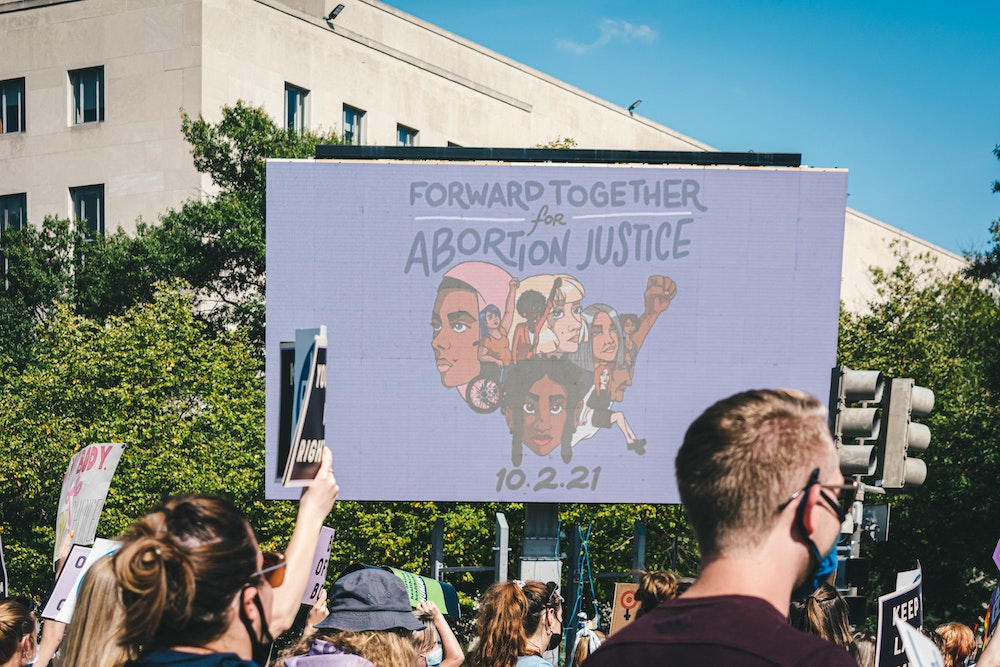From Texas, to Mississippi, to Poland, we’ve seen a full frontal assault on reproductive freedom. The Trauma & Psychological Well being Report put this text collectively to concentrate on the experiences of those that select abortion, experiences which might be as wealthy as they’re different.
Stephanie Gómez, who is predicated in Texas working in democracy reform explains what she felt although her personal abortion course of:
“I had my abortion after I was in highschool. I had only recently turned 18 so I didn’t must abide by parental consent legal guidelines. I had a surgical abortion and was going to be put beneath normal anesthesia, so I wanted somebody to drive me. The abusive one that received me pregnant was the one one who might, which put me in an unsafe scenario and beneath a whole lot of emotional misery. I bear in mind feeling reduction after the abortion, however there was a whole lot of that internalised stigma. There was a interval the place I additionally felt responsible for feeling relieved.”
Antonia Biggs, a social psychologist at Advancing New Requirements for Reproductive Well being, explains that “the most typical emotion related to abortion is reduction, as demonstrated by Corinne Rocca’s paper. Rocca discovered that individuals have extra unfavorable feelings in regards to the being pregnant than the abortion and that the depth of all emotions declines over time.”
This can be shocking to some, as remorse is usually considered the distinguished emotion felt post-abortion. Biggs shares some analysis on the sensation of remorse:
“My colleague, Katrina Kimport, accomplished in-depth interviews with individuals who confirmed potential indicators of remorse about their abortions. In the long run, she discovered that they had been experiencing complicated feelings in regards to the abortion and their scenario and that they weren’t really regretting the abortion itself. Moderately, they had been regretting the expertise of the unintended being pregnant, the reactions of the individuals of their lives to their being pregnant or abortion, their life circumstances, and so forth.”
Biggs explains that The Turnaway Research gives us with the most effective proof we’ve thus far on the psychological penalties of getting an abortion: “We discover that the abortion itself doesn’t trigger any type of psychological well being hurt, however that denying individuals their needed abortions has extra unfavorable penalties to their psychological well being—extra anxiousness, stress, and decrease vanity— than permitting individuals to get their needed abortions. It’s additionally necessary to differentiate feelings in regards to the being pregnant choice from a clinically vital psychological well being situation.”
Kelsea McLain, Well being Care Entry Director with the Yellowhammer Fund, describes the context that allowed considered one of her experiences with abortion to be emotionally simpler:
“I’ve had three abortions and so they’ve all type of occurred beneath very completely different circumstances in my life. My second was uncomplicated. It didn’t harm me financially to pay for it, and I used to be in a position to have it occur at house and talked overtly with my buddies and family members about it. I believe that actually modified the expertise for me.”
It’s necessary to acknowledge that any particular person with the power to get pregnant can expertise a necessity for abortion. Trans, non-binary, and gender expansive people can face added challenges in accessing reproductive healthcare.
Obstacles to accessing abortion care, together with criminalization and discrimination, are what really affect particular person wellbeing. Lexi D., Useful resource Coordinator of Girls Have Choices Ohio, shares her expertise:
“My OBGYN’s angle actually shifted as soon as I instructed them that I used to be presumably eager about abortion. I used to be denied care to the purpose the place I felt like I used to be going to die. I take into consideration why I known as Deliberate Parenthood, and it was due to figuring out what I knew, particularly in regards to the systemic racism points that we’ve within the healthcare subject. I used to be like, ‘I’m not about to die as a result of nobody desires to assist me.’”
In terms of offering improved assist for individuals who have had an abortion, there’s a want for de-stigmatization. This is applicable significantly to the sphere of psychological well being, as some clinicians might maintain prejudices towards their shoppers. Gómez shares:
“After my abortion, I went to my first psychological well being skilled. The therapist would discredit the abusive scenario and would say, ‘You’re feeling unhealthy since you had an abortion.’ That basically prevented me from getting the assistance that I wanted for a very long time. Now I can look again and say no, I used to be being abused and that’s why I used to be feeling depressed. I had the abortion and that was the reduction.”
There are additionally choices outdoors of conventional healthcare techniques equivalent to abortion doulas, who’re people educated to offer emotional assist all through the abortion course of. Sarah Lopez, Consumer Coordinator of Jane’s Due Course of who received her begin within the motion after her personal abortion, shares why she’s coaching to be an abortion doula:
“I believe it might have actually helped to have any individual there to carry area, to speak me via all the things and supply validation.”
Regardless of the boundaries and stigma surrounding abortion, the pro-choice neighborhood remains to be actively working collectively to offer higher sources for individuals who want this important service.
– Chiara Gianvito, Senior Contributing Author
Picture Credit:
Characteristic: Gayatri Malhorta at Unsplash, Inventive Commons
First: Amin RK at Unsplash, Inventive Commons
Second: Gayatri Malhorta at Unsplash, Inventive Commons



